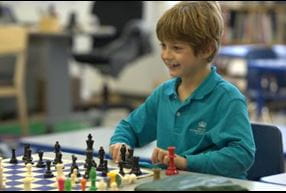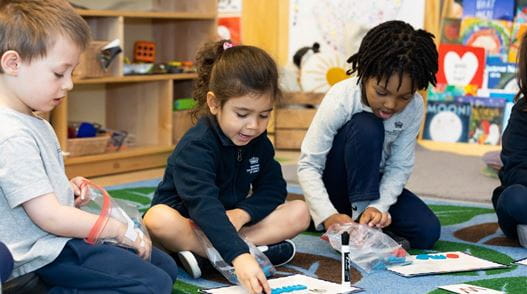We use cookies to improve your online experiences. To learn more and choose your cookies options, please refer to our cookie policy.

What are Critical Thinking Skills?
In today’s world, equipping children with strong critical thinking skills is more important than ever. Critical thinking enables young minds to analyze situations, make informed decisions, and solve problems with creativity and independence. By fostering critical thinking at an early age, we empower children to navigate challenges both inside and outside the classroom, laying the foundation for lifelong learning and success.
Why are Critical Thinking Skills important for Children?
Critical Thinking skills are the ability to analyze, interpret, and evaluate information to make informed judgments and solve problems. For children, these skills include:
Analysis - breaking down information into smaller chunks to understand it better
Evaluation - assessing the usefulness of information and how it can be used
Problem-solving- Developing strategies that can be used when faced with a challenge.
Inference - Drawing conclusions based on evidence and examples and using this to inform ideas and decisions
Reflections - Thinking about decisions made and how they can be improved or used again in the future.
We all want to prepare our children for the future and help them grow into thoughtful, independent adults who have the tools to deal with any situation they encounter in life. If children can think critically then they can tackle problems with logic and creativity while having skills that allow them to be resilient. They learn to think for themselves, rather than relying on adults around them, and make informed decisions and choices. Critical thinking doesn't just allow children to understand new learning better, it also helps them analyze emotions and respond to those feelings, equipping them to adapt to changing environments more confidently.

There are several strategies that help develop critical thinking, all of which require practice and patience to allow for thoughtful analysis.
Open-ended questions encourage curiosity and require deeper thinking and analysis than those that just require yes or no answers—asking 'how' and 'why' should always be encouraged. In school, we will often ask questions such as, ‘How is this book similar/different to the one we read last week?’ or ‘Why is the answer 50 and not 500?’. This allows children to showcase the depth of their knowledge as well as prompting them to use subject specific vocabulary.
Being able to reflect on an activity or decision helps children understand their thought process and think about what worked well or could have been done differently. For example, editing a piece of writing allows times for reflection and opportunities to improve. Teachers at BISC-LP will also often ask children to practice this skill throughout a lesson, even just using a simple action such as showing a thumbs up to demonstrate how they feel about their learning.
Children learn how to think through situations logically when discussing pros and cons and they witness critical thinking being modeled to them; seeing an adult talk through problems and decisions out loud gives them a frame of reference and helps them understand that critical thinking skills are used by everyone at every stage of life.
Activities such as puzzles, board games, strategy games, or logic puzzles require planning, strategy, and evaluation of consequences. Many of our after-school clubs, particularly in the younger years, have elements of these activities incorporated as they provide the opportunity to put critical thinking skills to the test.

Everyday activities like watching a movie or reading a bedtime story, can provide multiple opportunities to develop critical thinking skills. In school, we provide opportunities for this when studying a book in English lessons; children may be asked to write a letter giving a character advice, create a role play of what they think the next scene should look like, or writing imagined conversation between two characters. These all provide opportunities to consider the consequences of decisions and help them understand relationships between actions and outcomes.
Engaging in friendly debates improves their ability to reason and think critically about other points of view. We encourage children to ‘build upon’ or ‘challenge’ something a teacher or a friend may have offered as an answer. Often children may also be asked to explain a ‘mistake’ that their teacher has made to show that they understand a particular process.

Creative outlets such as drawing, painting, writing, or building are incorporated throughout our curriculum; these are not only good for developing mindfulness in children, but they allow children to experiment, create, and think outside the box. They also help them think in different ways and find unique solutions to problems as well as allowing them to edit and improve their work.
Consistently engaging in practices such as these, in and out of the classroom, will allow critical thinking skills to be nurtured and make children better problem solvers, decision- makers, and independent thinkers in their daily lives.
Carla Williamson
Year 3 Leader